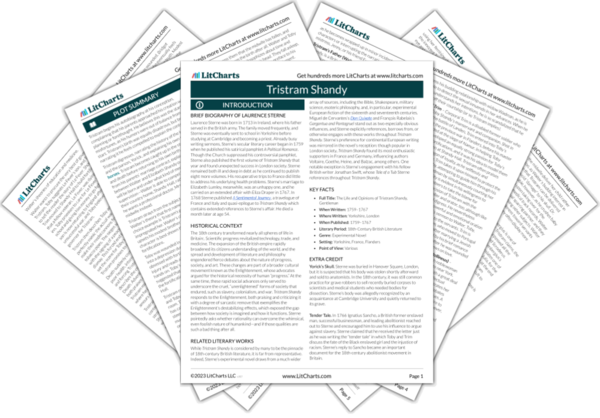Tristram’s “translation” of Slawkenbergius’s tale clearly includes a great deal of invention, too, as it is much longer than the original. This story, like much else in Tristram’s novel, draws heavily from Cervantes’s
Don Quixote and is simultaneously a parody and a homage. It is unclear if the Promontory of Noses is a real place or not; likewise, it does not geographically make sense that the stranger will return to Strasbourg from Frankfurt on his way to Crimea, as Strasbourg is west of Frankfurt and very far from Crimea (today part of Ukraine). The scandal caused by the stranger’s nose once again suggests the lewd interpretation of “nose” as “penis,” despite Tristram’s strenuous denials that that is the case.
